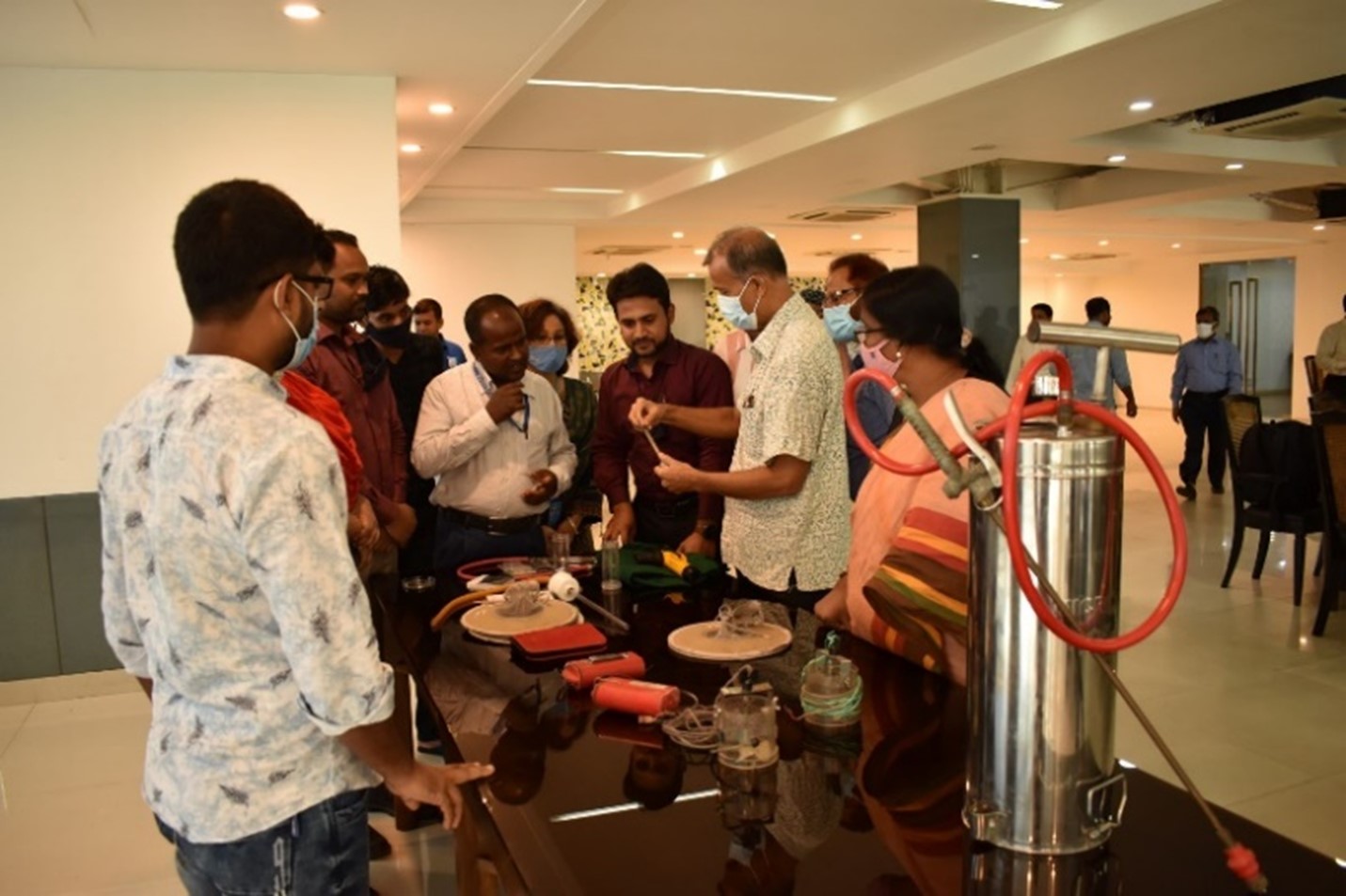In the current national strategic plan, National Kala-azar Elimination Programme (NKEP) has set a target of achieving zero transmission of Kala-azar by 2025. Vector control is one of the important strategies of NKEP for interruption of transmission of Kala-azar in Bangladesh. Bangladesh achieved the target for elimination of Kala-azar as a public health problem, with the annual incidence of Kala-azar cases below one case per 10,000 population at all endemic Upazilas in 2016.
Communicable Disease Surveillance unit of WHO Bangladesh supported NKEP, CDC, and DGHS in organizing Training on National Kala-azar Vector Control Guideline for Entomologists and Ento-technicians. From 19 July to 21 July 2022, training of Entomologists and Ento-technicians were conducted in two batches. In the first batch, 24 Entomologists and Ento-technicians from the central level, and in the second batch, 35 Entomologists and Ento-technicians from the peripheral level participated in the training. During the training, the participants were trained on vector control methods, vector survey, monitoring, and supervision, recording and reporting system, bioassay, and insecticide resistance monitoring.


Most training sessions have taken place with lectures and practical demonstration methods with multimedia for PowerPoint presentations. Participants were interactive, and Local and non-local resource persons shared their experiences with the trainee. The central level staff from NKEP, experts of Kala-azar vector control from different organizations, and technical experts from WHO (WHO country office, Bangladesh) facilitated the sessions as resource persons. As expected, this training could orient the Entomologists and Ento-technicians on the national Kala-azar vector control activities guidelines.
NKEP has been implementing several vector control activities since 2012. Recently, NKEP has developed a comprehensive guideline on Kala-azar vector control and aligned the guideline with the recently developed national IVM guideline. Entomologists' and Ento-technician training are crucial to implementing the vector control guidelines. It is hoped that the national programme will implement the updated kala-azar national vector control guideline using trained human resources to control the kala-azar vector and, therefore, interrupt the transmission of kala-azar in Bangladesh.
“I am hopeful that after receiving this training, our Entomologists and Ento-technicians will be more confident in the Kala-azar vector control issue, which will help them get their work efficiently. I thanked WHO Bangladesh and its technical personnel for providing their support in this.” said Prof Dr Md Nazrul Islam, Director Disease Control & Line Director, CDC, DGHS.
For more information on the issues covered in this web story, please contact: ssultana@who.int
